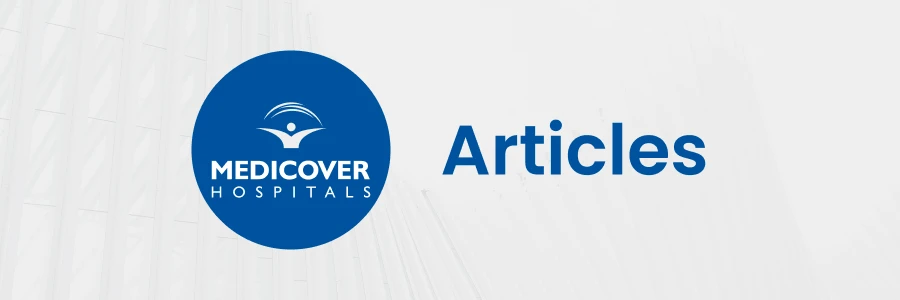- Cardiology 84
- Dermatology 45
- Endocrinology 33
- ENT 16
- Fertility 190
- Gastroenterology 78
- General-Medicine 81
- Gynecology 80
- Hematology 19
- Infectious-Diseases 33
- Neurology 52
- Oncology 34
- Ophthalmology 23
- Orthopedics 69
- Pediatrics 31
- Procedure 23
- Public-Health 144
- Pulmonology 59
- Radiology 8
- Urology 68
- Wellness 161
- Woman-and-child 77

Understanding Heart Stent Treatments and Their Implications
Heart stent treatments are a common medical procedure used to treat various heart conditions, such as heart blockages and heart attacks. These procedures can be life-saving but may also have implications for other organs, such as the kidneys. In this blog, we'll explore the details of heart stent treatments, their applications, and potential risks, including kidney failure.
What is a Heart Stent?
A heart stent is a small, mesh-like tube inserted into narrowed or blocked coronary arteries. The stent helps keep these arteries open, ensuring adequate blood flow to the heart muscle. This procedure is often used to treat:
Secure your health with a second opinion. Make informed decisions and book your appointment today!
Get A Second Opinion- Heart blockages: Blocked arteries can lead to chest pain (angina) and other severe heart conditions.
- Heart attacks: When an artery becomes completely blocked, a heart attack can occur. Stents are used to restore blood flow during or after a heart attack.
Heart Block Treatment Stent
When treating heart block, a condition in which the electrical signals in the heart are wholly or partially blocked, stents can be part of the treatment plan. Although pacemakers are more commonly used for electrical issues, stents may be necessary if arterial blockages cause the heart block.
Heart Attack Treatment Stent
In the case of a heart attack, time is critical. Stents are often placed during an emergency procedure called percutaneous coronary intervention (PCI) or angioplasty. This treatment involves threading a catheter with a stent through the blood vessels to the blocked artery, where the stent is expanded to restore blood flow.
Potential Complications: Kidney Failure After Heart Stent
While heart stent procedures are generally safe, they are not without risks. One significant concern is the potential for kidney failure after a heart stent procedure. This risk is particularly relevant for patients with pre-existing kidney disease. The use of contrast dye during the procedure can affect kidney function, leading to a condition known as contrast-induced nephropathy (CIN).
Heart Stents and Kidney Disease
Patients with kidney disease need special consideration when undergoing heart stent procedures. Pre-procedure evaluations often include kidney function tests to assess the risk. Strategies to minimize this risk include:
Ready to take control of your health journey? Book your appointment now and start your path towards wellness today!
Book an Appointment- Using the smallest possible amount of contrast dye.
- Ensuring adequate hydration before and after the procedure.
- Using alternative imaging methods that do not require contrast dye.
Conclusion
Heart stent treatments play a crucial role in managing and treating heart blockages and heart attacks. While these procedures are generally safe and effective, they carry potential risks, especially for patients with kidney disease.
Understanding these risks and working with a specialized medical team can help ensure the best possible outcomes. If you or a loved one is considering a heart stent procedure, it's essential to discuss all potential risks and benefits with your healthcare provider.
Frequently Asked Questions
A heart stent is a tiny, mesh-like tube placed in a blocked artery to keep it open and improve blood flow to the heart.
IVUS (Intravascular Ultrasound) technology uses sound waves to create detailed images of arteries, helping doctors place stents more accurately.
Blocked arteries can affect kidney function, so improving heart blood flow with a stent can reduce the risk of kidney problems.
People with severe blockages in their heart arteries that could affect kidney function may benefit from this treatment.
IVUS helps doctors see the artery's condition better, ensuring the stent is placed accurately for optimal blood flow and kidney protection.
Risks can include bleeding, infection, or allergic reactions to medications used during the procedure, but these are rare.
It usually takes about 1-2 hours, and most patients can go home the next day after recovery.
You may feel tired or sore for a few days, but most people can resume normal activities within a week with doctor approval.

- Cardiology 2132
- Dermatology 168
- Endocrinology 135
- ENT 97
- Fertility 217
- Gastroenterology 232
- General 478
- General-Medicine 1685
- Gynecology 169
- Hematology 85
- Infectious-Diseases 208
- Neurology 207
- Oncology 345
- Ophthalmology 65
- Orthopedics 187
- Pediatrics 83
- Procedure 72
- Public-Health 209
- Pulmonology 126
- Radiology 13
- Second Opinion 311
- Urology 294
- Wellness 600
- Woman-and-child 447
- Others 10217
Related Blogs
If you have any questions, please fill out the enquiry form or call us, and we will get back to you promptly.
040-68334455